Frank Turner: essential tips for acoustic singer-songwriters
How keeping an open mind and a positive attitude will help your career
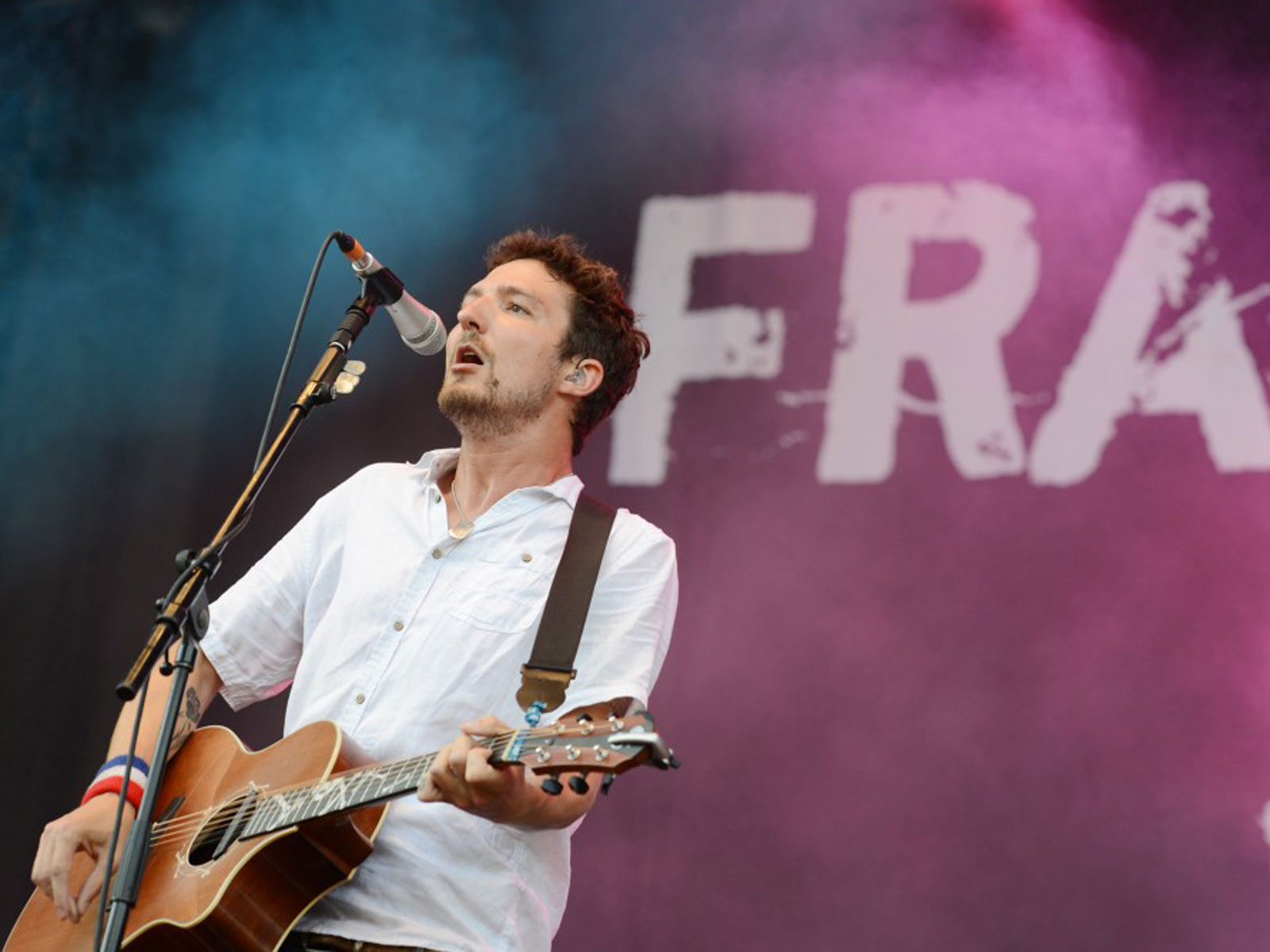
Introduction
ACOUSTIC EXPO 2014: When faith, talent and determination align, success isn’t usually far behind. Frank Turner has been on an incredible ascent with his impassioned brand of acoustic folk for a decade. Now he explains how he made it on his own terms…
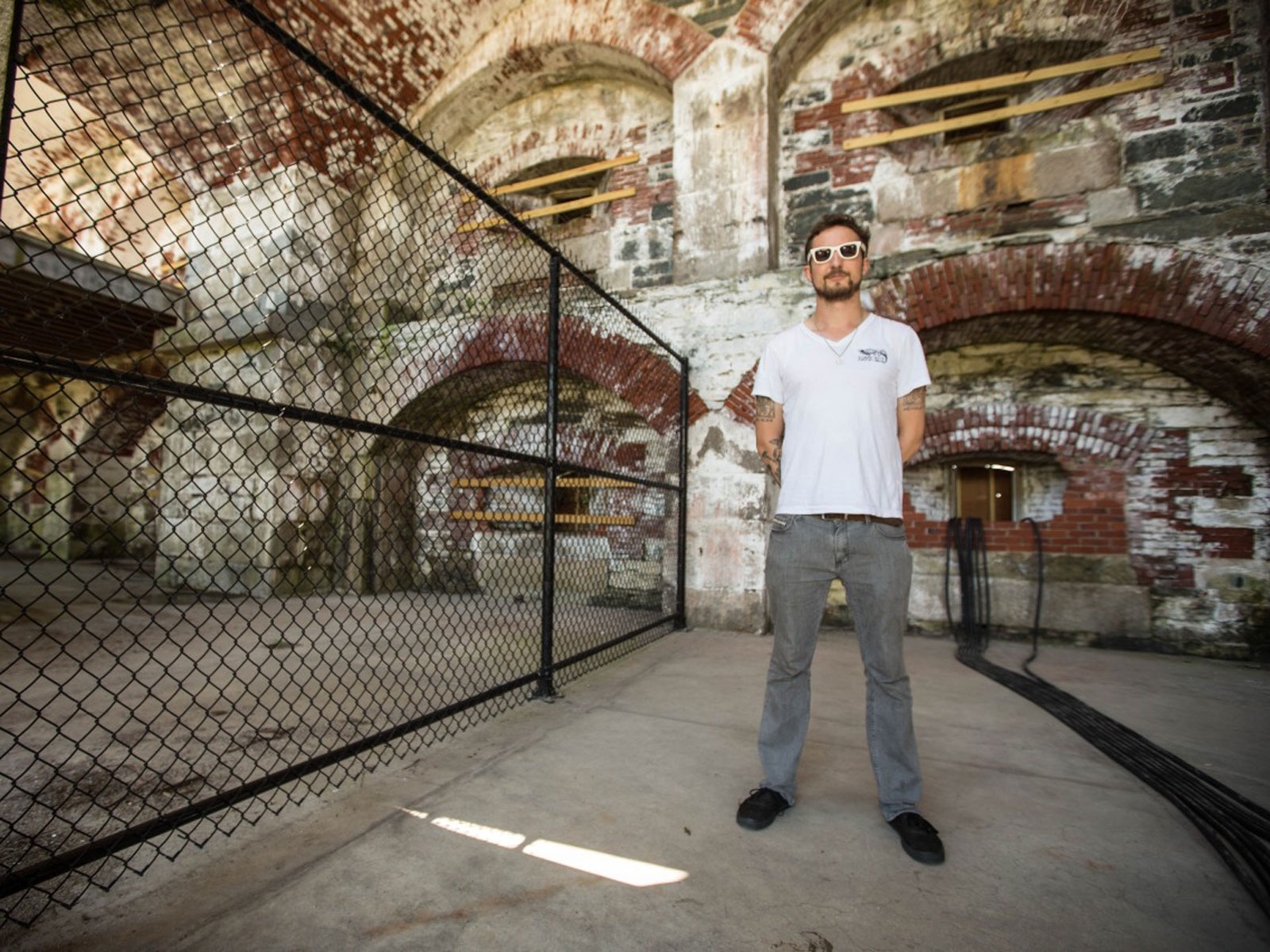
Believe in yourself
When he was 10 years old, Frank’s piano teacher delivered some crushing news.
“I scraped through my grade two on piano,” says Frank. “She told me I wasn’t cut out for music, because I was so crap as a piano player.”
Just how wrong can one person be? Given Frank’s punk rock beginning, five solo albums, five EPs and countless tours, including sold-out arena shows, the answer is very.

P.M.A., all the way
Even though he says there was “no eureka moment”, something tells us the early rebuke at the hands of his piano teacher set Frank’s inner fire blazing.
“There was nothing else I wanted to do except play music,” he says with conviction. “I don’t see the point in doing anything half-arsed. Give it your full attention!”
A positive mental attitude and “always looking for the next step” thus form the cornerstones of his success.

Keep an open mind
After digesting the works of Maiden and Priest, there was only one way Frank’s guitar playing could begin. Yet - as the man himself illustrates - no matter where your roots lie, keeping an open mind is crucial to your development as a player and songwriter.
“I played metal initially, then punk rock and hardcore,” says Frank. “As a kid, my main focus was learning thrash. It was all about super fast down picking. Later on, I discovered the joys of Bob Dylan and Neil Young. Just learning the rudiments of playing guitar like Neil Young was a challenge.
“I knew how to play C, G and D, but now I’m learning tricks like passing notes and how to pick out a melody in a major scale while moving from one chord to the other.”
Frank pauses for a few seconds, considering his words: “If you’re from a metal background you can often be disdainful about acoustic. Actually, the intricacies of playing within simpler confines are harder than you think.”
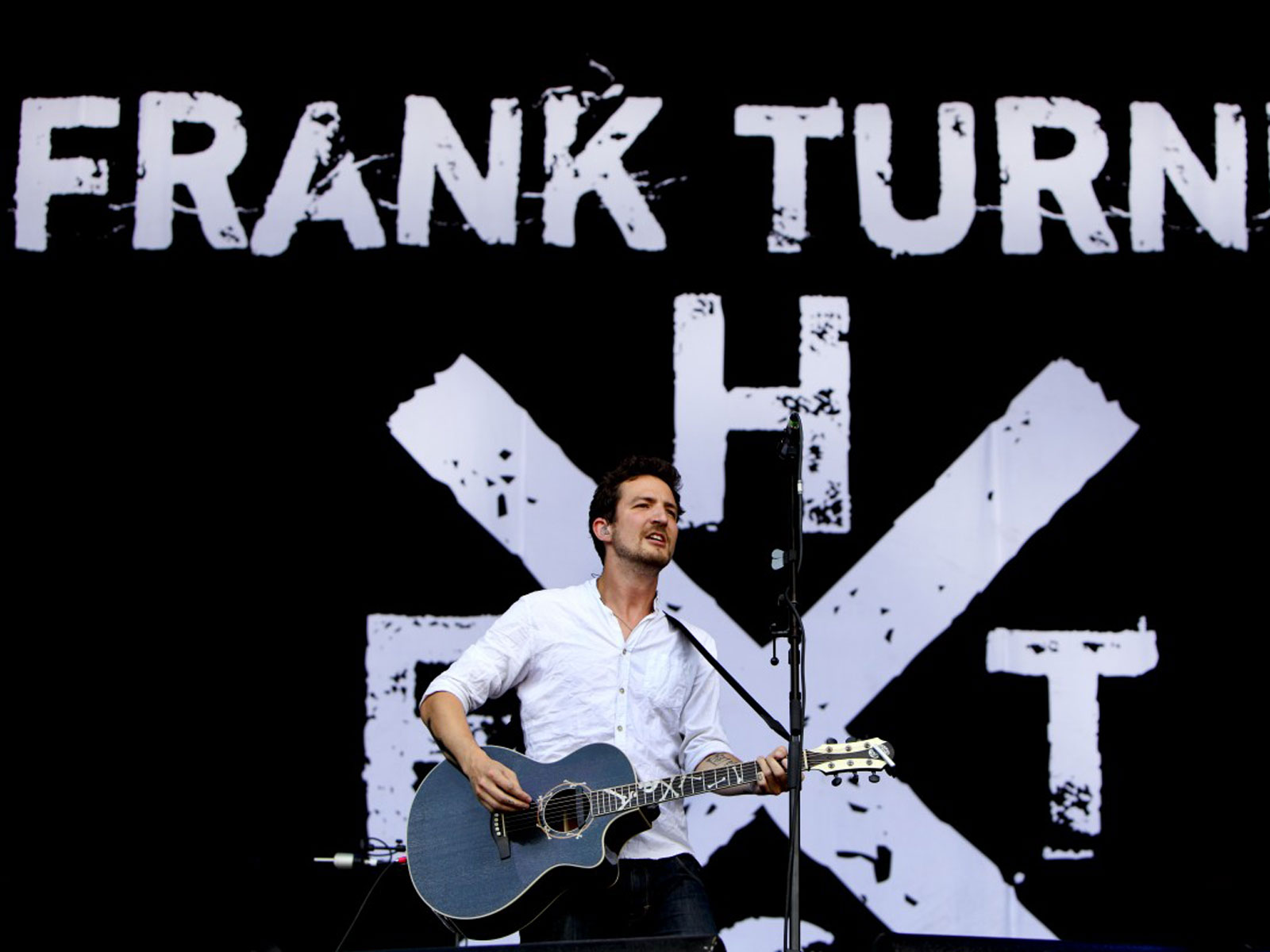
Draw on your experience
Despite his reputation as an acoustic-wielding troubadour, Frank first made his name fronting hardcore-types Million Dead and rarely touched an instrument onstage. Nonetheless, the experience was valuable.
“Our first gig, I spent most of it singing at my feet, drums, lights… Anything but the audience,” he recalls. “Learning how to perform and engage with an audience is something I learned in Million Dead.”
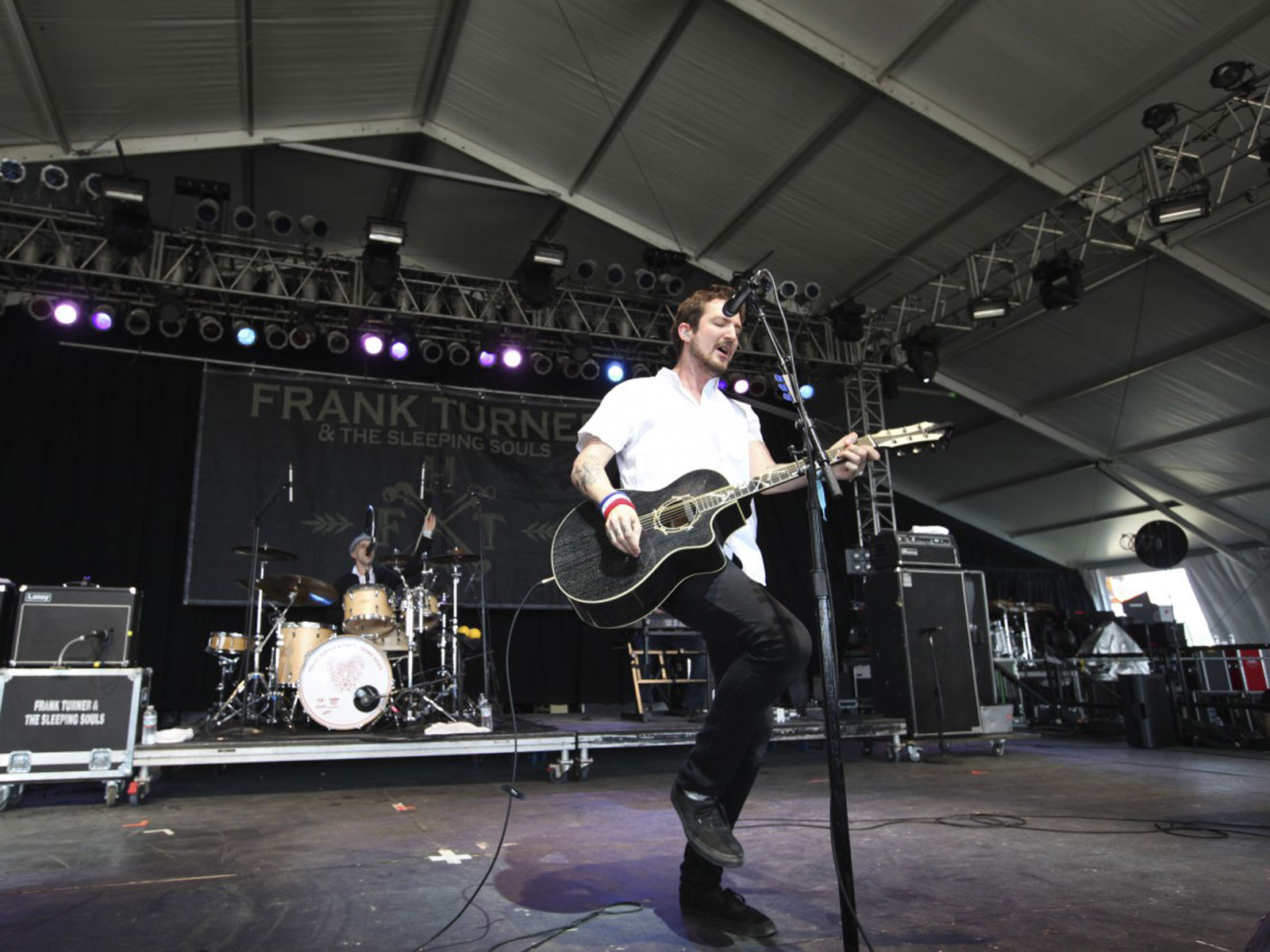
Keep going
Turner has now played well over 1,000 shows under his own name, including a watershed Wembley Arena gig back in 2012.
Post-Million Dead, his early gigs were physically and emotionally exhausting, financially unrewarding and not without their naysayers, but he persisted.
“Leaving a hardcore band and going solo is a beaten path now,but in 2005, it wasn’t, explains Frank. “I remember telling people and them asking me, ‘What the f*** are you talking about?’”
“£50 plus train fare was my shout for a gig. I played everywhere: houses, uni halls, squats… I kept going and it worked.”

Learn the tricks of the trade…
As a musician you need to think about how your songwriting, technique and arrangement can best complement your performance - and it’s a practice that’s particularly important for solo performers.
“Those early shows, it was just me and my guitar,” says Frank. “[But] there are a lot of tricks, such as building a dynamic and using feel to make one voice, one guitar, go a long way. Worse Things Happen At Sea [from 2007’s Sleep Is For The Week] is a good example of that.”
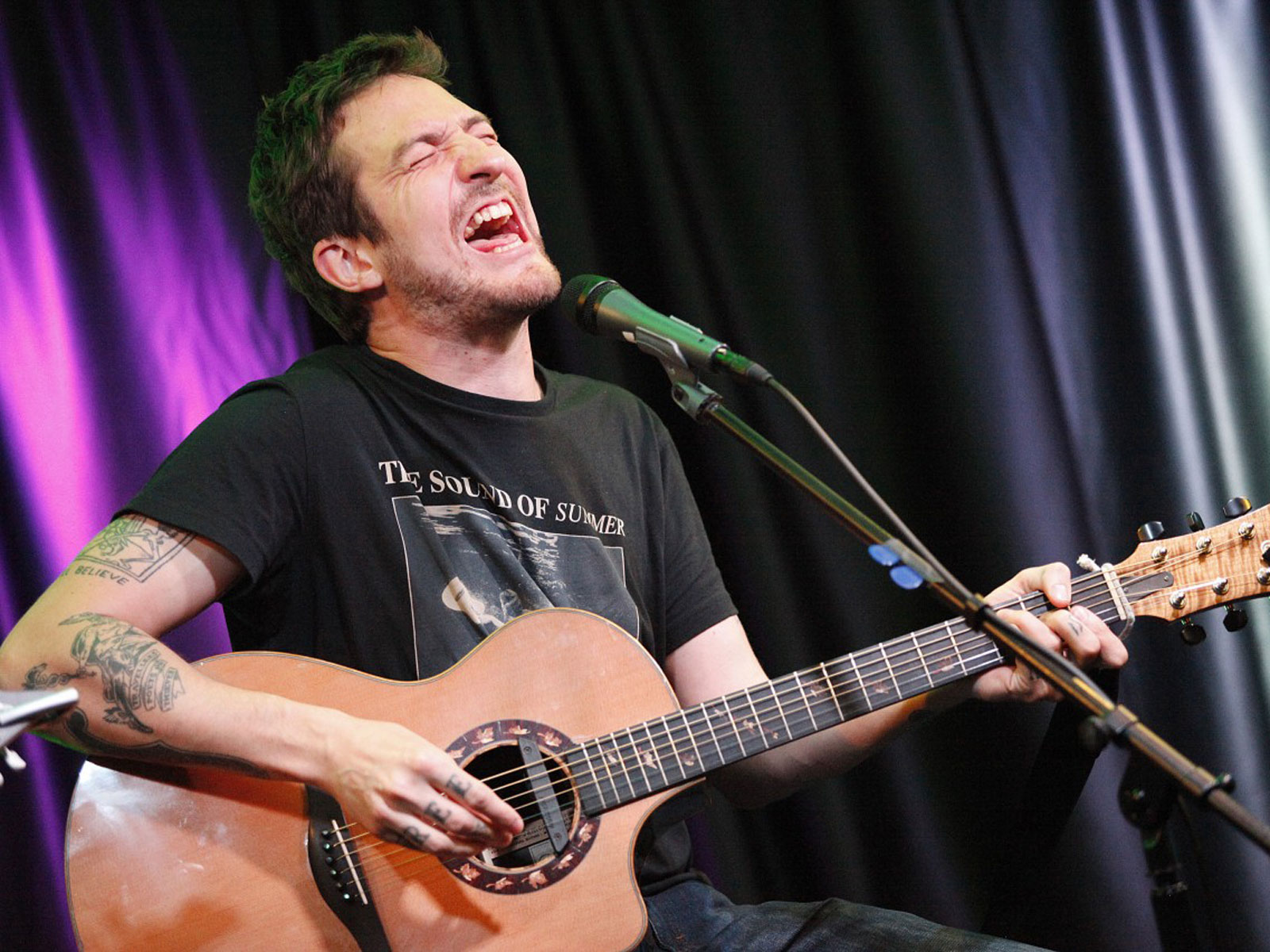
…But don't be a slave to technique
As important as it is to have regular practice time and develop your playing, Frank reckons you need to make sure that you’re actually applying new techniques to get the most out of them.
“Learning techniques in a dry way is too direct for me,” says the songwriter. “If I learn how to play something, it’s because I want to put it in a song now. At the moment, I’m working on banjo style fingerpicks. It’s not going particularly well right now, but give me a couple of years and we’ll see!”

Enjoy it
You might not be where you want to be with your music, but if you stop taking pleasure in performing, writing and playing then you’re missing the point!
“I want to spread out my music, play in more countries, and I’m ambitious within the UK too: bigger venues, longer tours,” Frank tells us.
“[But] all that is said with the proviso that I’m grateful for the things I have, and if it doesn’t get any bigger than right now, that’s OK. To be able to make a living out of playing music you love is such a rare thing. I know how lucky I am.”

Total Guitar is Europe's best-selling guitar magazine.
Every month we feature interviews with the biggest names and hottest new acts in guitar land, plus Guest Lessons from the stars.
Finally, our Rocked & Rated section is the place to go for reviews, round-ups and help setting up your guitars and gear.
Subscribe: http://bit.ly/totalguitar
“KIKI BOY 2025”: Frank Ocean appears to be teasing something... or other
“Not quite my cup of tea… I feel like I’d hear this on iHeartRadio or something”: Bon Iver’s Justin Vernon takes to the streets of New York to play people his new album… and nobody knows who he is
“KIKI BOY 2025”: Frank Ocean appears to be teasing something... or other
“Not quite my cup of tea… I feel like I’d hear this on iHeartRadio or something”: Bon Iver’s Justin Vernon takes to the streets of New York to play people his new album… and nobody knows who he is











